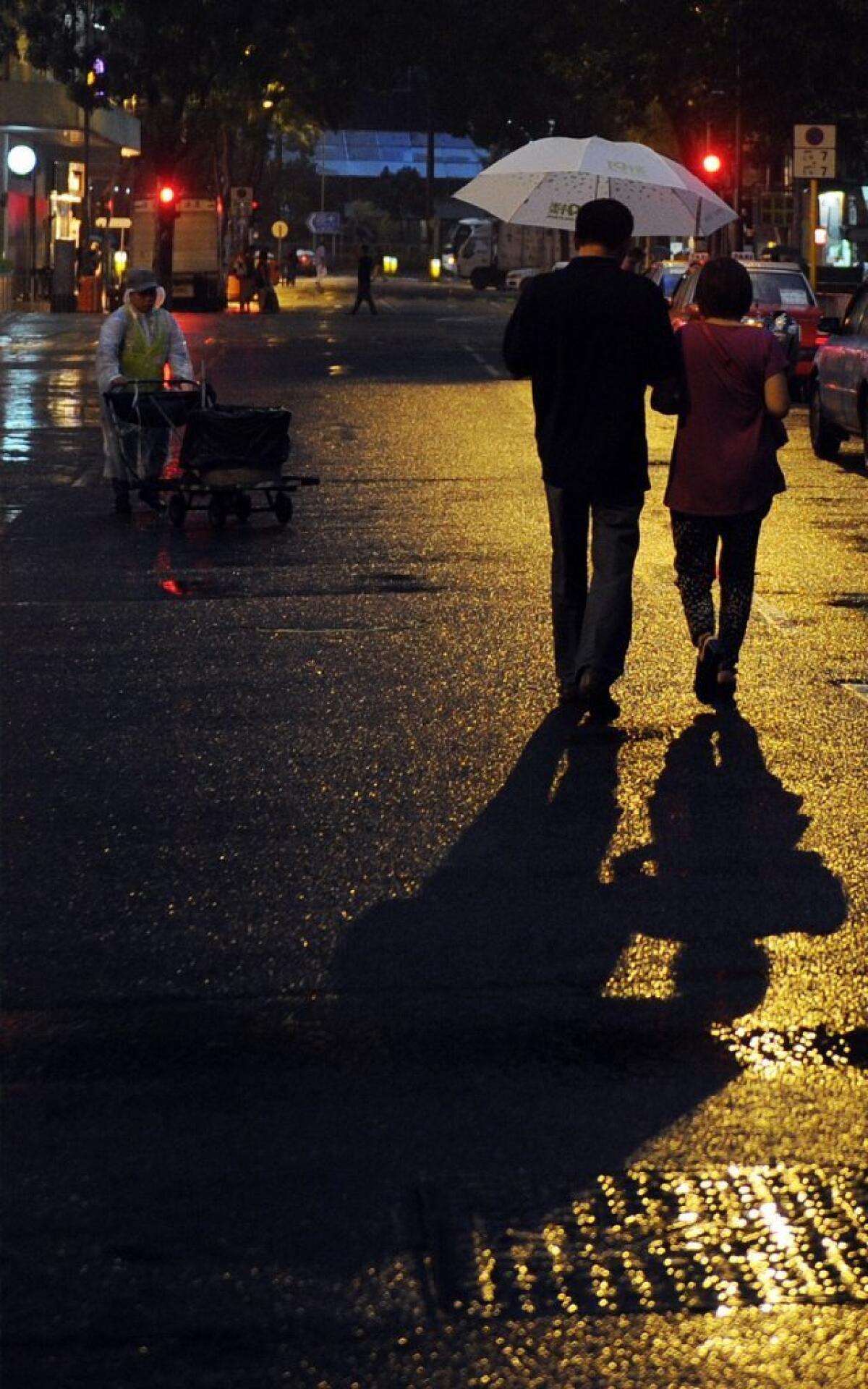Walk this way: Men slow down when sex is at stake

The way we walk is not just the way we walk.
The strolling pace of men and women may give away some clues about our romantic partnerships and friendships, according to a study published Wednesday in the online journal PLOS One.
Men slow their pace for female romantic partners, more so than for women they don’t know. And when they walk with other men, dudes are practically racing, according to the study.
Women, on the other hand, hardly varied their pace for their beau or guy friend, but when walking with each other, they slowed down appreciably.
Reproductive success may underlie the difference -- women who can conserve energy, and the men who help them do so, will have greater chances of producing and caring for offspring, according to anthropologist Cara M. Wall-Scheffler of the University of Washington, Seattle, who led the study.
“By men slowing down, the female reproduction is protected, and that’s not something that is trivial,” Wall-Scheffler said. “There is so much data that when women are able to reduce the amount of energy they spend walking, they have more children.”
Studies have shown that daily walking distances can influence the interval between births and the survival rates of offspring in foraging societies.
Men generally tend to have a higher optimal speed than women due to differences in size and mass. A woman trying to keep up with a man would be burning calories that could prove costly in a challenging environment, such as the African bush or Australian outback.
“In indigenous, hunter-gatherer populations -- groups who are walking huge amounts -- we see females walking together with other females and we see men tending to walk by themselves or maybe with one other individual,” Wall-Scheffler said. “That’s typical, cross-culturally.”
Apparently, the same appears true of American college students, 22 of whom walked around a track at a public park for Wall-Scheffler and her fellow researcher, Janelle Wagnild, a biologist at Seattle Pacific University. The men and women -- among them romantic partners, friends and strangers -- walked in various combinations of two and by themselves, while researchers measured their speeds.
Results confirmed that men made more accommodations for their romantic partners than for anyone else but also showed that females would increase their pace for male friends. And they all appeared to do so unconsciously, Wall-Scheffler said.
So, if U.S. college students aren’t under the same strains as hunter-gatherers, why would they behave this way? Could this behavior be a remnant of some evolutionary selection?
“I definitely think there is an evolutionary outcome,” Wall-Scheffler said. “Whether or not selection has acted on this behavior so that we still see it among men today -- I don’t know if I could go that far.”




